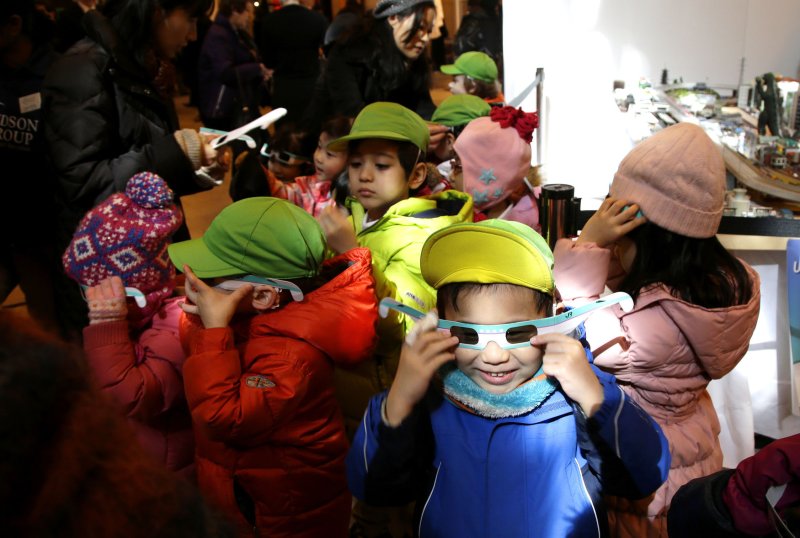Small children who were lied to more apt to lie too. UPI/John Angelillo |
License Photo
SAN DIEGO, March 20 (UPI) -- A study involving 5-, 6- and 7-year-olds who had been lied to were more likely to cheat and more likely to lie about having done so, U.S. researchers say.
"As far as we know, this is the first experiment confirming what we might have suspected: Lying by an adult affects a child's honesty," Leslie Carver, an associate professor of psychology and human development at the University of California, San Diego Division of Social Sciences, said in a statement.
Carver and Chelsea Hays, who worked on the study as an undergraduate student in psychology at the University of California, San Diego, said they found adult dishonesty makes a difference to children and not in a good way.
The study tested 186 children ages 3 to 7 in a temptation-resistance experiment. Approximately half of the children were lied to by an experimenter, who said there was "a huge bowl of candy in the next room" but quickly confessed this was just a ruse to get the child to come play a game. The others were simply invited to play, with no mention of candy.
The game asked children to identify character toys they couldn't see by their sounds. Sounds and toys were pretty easy to pair: a "Tickle me" audio clip for Elmo; "I love cookies" for Cookie Monster. One sound was deliberately tricky: Beethoven's "Fur Elise," not associated with any commercially available character toy.
When the classical music cue was played, the experimenter was called out of the room to, supposedly, take a phone call -- leaving the children alone in the room for 90 seconds and tempting them to take a peek at the mysterious toy making the sound. The children were explicitly asked not to peek.
The study found about 60 percent of the school-age children who had not been lied to by the experimenter peeked at the tricky temptation toy and about 60 percent of the peekers lied about it later. Among those that had been lied to, those figures rose to nearly 80 percent peeking and nearly 90 percent of the peekers lying.
"Why?" remained an open research question. Carver and Hays said it could be the children were simply imitating the behavior modeled by the adult or they could be making judgments about the importance of honesty to this adult.
Or, "the children did not feel the need to uphold their commitment to tell the truth to someone who they perceived as a liar," the researchers said.
The study was not designed to get at the reasons children are more likely to lie when they have been lied to, but to demonstrate the phenomenon occurs, Carver said.















